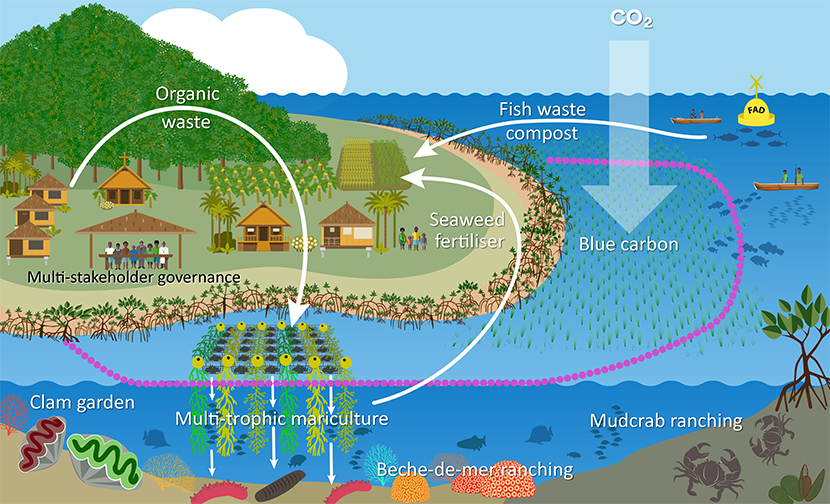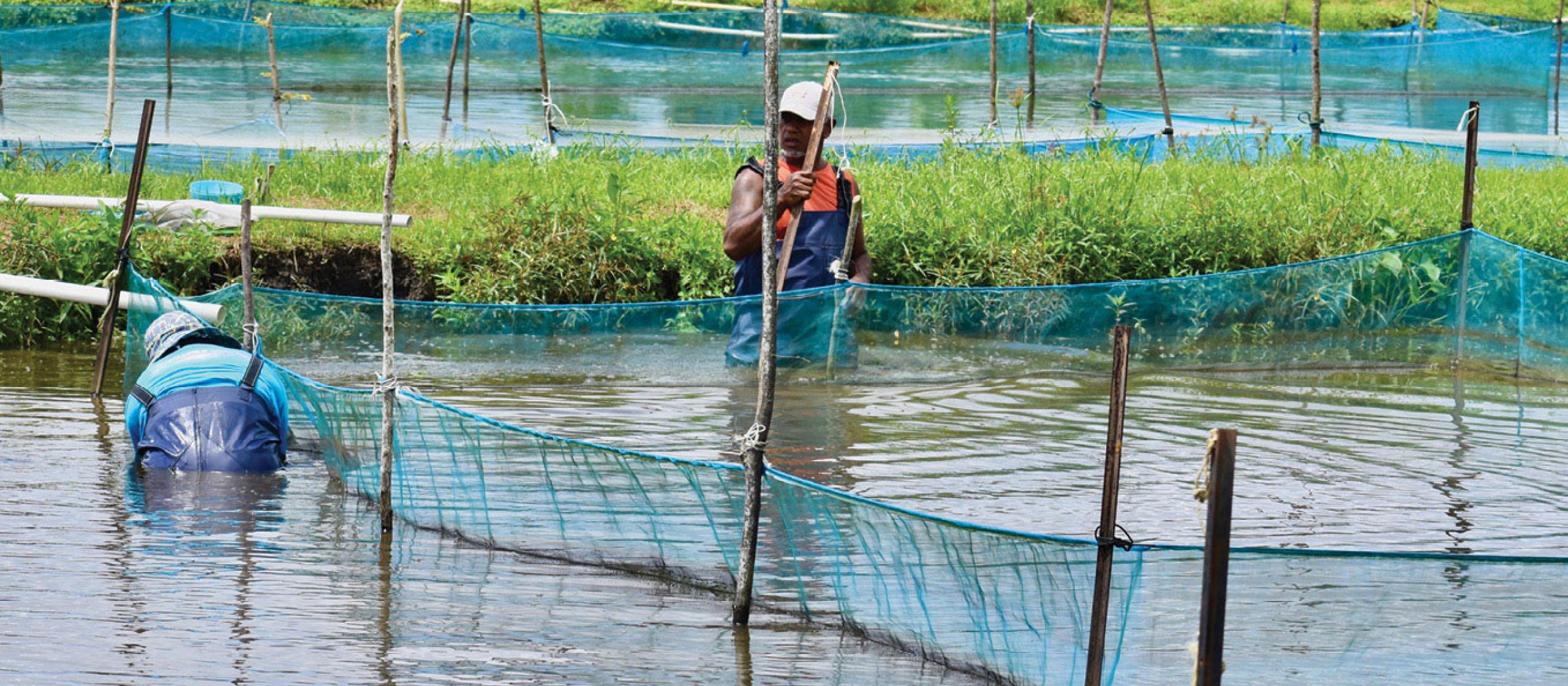- HomeHome
-
About ACIAR
- Our work
- Our people
-
Corporate information
- ACIAR Audit Committee
- Commission for International Agricultural Research
- Policy Advisory Council
- Agency reviews
- Executive remuneration disclosure
- Freedom of information (FOI)
- Gifts and benefits register
- Information publication scheme
- List of new agency files
- Contracts
- Legal services expenditure
- Privacy impact assessment register
- Commonwealth Child Safe Framework
- Benefits to Australia
- Careers
- 40 years of ACIAR
-
What we do
- Programs
- Cross-cutting areas
- Resources
- Where we work
-
Funding
- Research projects
- Fellowships
-
Scholarships
- John Allwright FellowshipScholarships to study in Australia for ACIAR partner country scientists to have Australian postgraduate qualifications
- ACIAR Pacific Agriculture Scholarships and Support and Climate Resilience Program
- Alumni Research Support Facility
- Publications
- News and Outreach
Date released
26 March 2021
There’s a sense of urgency underpinning the newest ACIAR project to transform coastal food systems in the Pacific region. With parts of low-lying islands becoming permanently flooded, coral reefs declining and human populations increasing, pressure is mounting on fisheries productivity.
Local authorities forecast a supply deficit in the region’s fisheries of 115,000 tonnes/year in the next 10 years.
In preparation for a larger project, a multi-stakeholder Small Research Activity (SRA) will identify ‘hot spots’ where the impact of climate change will be most severe and develop decision-making tools to enable local communities to adapt.
Having already tackled aspects of this challenge in Solomon Islands, Papua New Guinea (PNG) and on islands in the Torres Strait, CSIRO Land and Water’s Dr James Butler is under no illusion that the process will be simple.
‘It sounds relatively straightforward to find a process that enables people to plan for future food security, but everyone has busy schedules and there’s only time to think about putting food on the table tonight,’ says the project leader.
‘Few research projects have explicitly considered the risk of fisheries collapse and the need for innovations that can increase coastal food production in the context of climate change.
‘We want to integrate different forms of knowledge to anticipate this complex problem, find solutions and scale that process out across the Pacific, as well as encourage communities to drive the changes they want to secure a positive future for themselves. There is a lot of enthusiasm for this.’
List of 6 items.

ACIAR has enlisted New Zealand’s Cawthron Institute (which specialises in aquaculture research and marine and freshwater resource management) and AgResearch New Zealand to undertake a desktop review of options for integrating coastal food systems such as aquaculture, fisheries and agriculture to increase productivity and ensure sustainability.
The project will consider the future implications of climate change and COVID-19 impacts, combined with trends in population dynamics and diet, to identify where food and nutrition deficits are likely to be greatest and assess the capacity for transformation in these hot spots.
Dr Butler says a ‘food gap’ now exists in the Pacific region, where demand is exceeding local supply, prompting the growing population to rely on imported processed food that is low in nutrition and contributes to a rise in diseases such as diabetes and obesity.
‘We are investigating circular bioeconomy principles that involve recycling organic waste to create inputs for production and more efficient nutrient cycling, as well as developing metrics to measure and communicate the benefits of different combinations for social outcomes, to align with the United Nations Sustainable Development Goals.’
Other SRA partners are the Pacific Community (SPC) and the University of Technology Sydney.
Outcomes of the project will be used to design a larger multi-stakeholder project supporting local communities with decision-making processes and information about transformative options. The goal is to enable them to identify and act on the steps needed for a transformative change.
In particular it will build on two current ACIAR projects. The first is testing decision-making tools to plan food system transformations. The second looks at agriculture and fisheries for improved nutrition, taking into account assessments of current food system vulnerabilities for Fiji, Kiribati, PNG, Samoa, Solomon Islands, Tonga, Tuvalu and Vanuatu.
Finding key leaders and champions at a local level will be integral to the follow-on project’s success.
‘We have to engage with those who have the most influence at a community level—for example, clan chiefs in Solomon Islands,’ says Dr Butler.
‘There is also a big “youth bubble” that is coming through and they are tech-savvy, so it would be good to get them involved in the process of thinking about how to transform the growing and selling of food for their futures.
‘We need to build up our cohort of knowledge brokers or agents of change who have the skills to broker these processes in our absence. Their role is absolutely critical post-COVID as they’ll carry the torch to influence people and do things we can’t do.’
Senior lecturer at Solomon Islands National University, Dr John Fasi, is already a knowledge broker in the region. He says local people in low-lying communities are seeing once-dry coastal areas inundated with sea water during high tides, and sometimes permanently.
‘We must address land issues, agriculture practices and the issues around the population influx into inland areas from affected coastal areas and low-lying islands,’ Dr Fasi says.
‘Agricultural practices will need to produce more food so that means looking at alternative crops such as salt-tolerant species like swamp taro, for example, or crops that can grow in less fertile soil and are highly productive over a shorter period.’
A key factor outside the remit of the project that Dr Butler says will have a major impact on transformation is land tenure.
As the sea level rises on some of the Pacific’s coral atolls, conversations are being held about where to relocate displaced communities, but in most cases available land is already owned by customary landholders.
‘To move somewhere or grow food in new locations, they need someone else’s land; the problem is that this aggravates historic tensions over land tenure that have never been properly resolved,’ says Dr Butler.
‘We can provide a framework for planning and implementing transformation and adaptation for food but there are underlying systemic issues which must also be resolved to avoid conflict and open up opportunities for change.
‘This requires our project to partner across multiple sectors of government, landholders and non-governmental organisations so that issues that are not directly about food production can also be addressed.’
Key points
- Addressing the prospect that fisheries in the Pacific region may collapse is the focus of a new ACIAR-supported project.
- ‘Hot spots’ most affected by climate change will be targeted to help local communities adapt.
- Productive and sustainable options that integrate low-technology aquaculture, coastal fisheries and agriculture will be explored.
ACIAR project
- Transforming Pacific coastal food production systems, FIS/2020/108



